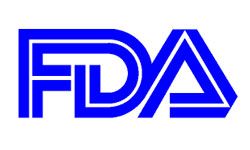FDA Approves New Aprepitant Dosing Regimen for CINV After MEC
The FDA has approved a supplemental New Drug Application for a single dose of aprepitant injectable emulsion for intravenous use in patients receiving moderately emetogenic chemotherapy. The approval expands the dose for aprepitant to include a 130 mg single-dose regimen for the prevention of acute and delayed chemotherapy-induced nausea and vomiting.<br />

The FDA has approved a supplemental New Drug Application (sNDA) for a single dose of aprepitant (Cinvanti) injectable emulsion for intravenous (IV) use in patients receiving moderately emetogenic chemotherapy (MEC). The approval expands the dose for aprepitant to include a 130 mg single-dose regimen for the prevention of acute and delayed chemotherapy-induced nausea and vomiting (CINV).1
Aprepitant is given to prevent CINV in patients with cancer who received treatment with highly emetogenic chemotherapy (HEC) or MEC.
"This most recent label expansion to offer a simplified dosing regimen for MEC adds to the important advantages Cinvanti provides to patients as the only FDA-approved, IV NK1receptor antagonist available as a convenient 2-minute IV push for MEC and HEC," said Rudolph M. Navari, MD, PhD, University of Alabama, Birmingham School of Medicine, Division of Hematology and Oncology, in a press release. "The simplified dosing in MEC removes the need for patients to take oral aprepitant on days 2 and 3, which can improve compliance and reduce costs. These benefits continue to improve the overall patient experience with Cinvanti."
Aprepitant is a neurokinin-1 (NK1) receptor antagonist free of synthetic surfactants that has demonstrated the ability to significantly reduce CINV in both the acute (up to 24 hours after chemotherapy treatment) and delayed (24 to 120 hours after chemotherapy) phases. Cinvanti is the IV formulation of aprepitant that is administered in 2-minute IV injections.
The FDA first approved Cinvanti in November 2017 for the prevention of acute and delayed CINV after the agent demonstrated bioequivalence and an improved safety profile compared with fosaprepitant (Emend IV), an aprepitant prodrug.2
In an open-label, single-dose, randomized, 2-way crossover phase I study, single-dose 130 mg aprepitant was compared with 150 mg fosaprepitant in 100 patients.3Aprepitant demonstrated bioequivalence in terms of area under the curve (AUC) from time 0 to time of last measurable plasma concentration, AUC from time 0 to infinity, and plasma concentration at 12 hours.
Additionally, fewer treatment-emergent adverse events (TEAEs) were seen with aprepitant compared with fosaprepitant (1% vs 20%). Dyspnea was the most common event observed in 3 patients treated with fosaprepitant and 1 with aprepitant. No severe TEAEs or deaths occurred and all TEAEs were able to be resolved.
The approval in February 2019 to expand the approval of aprepitant to include a 2-minute IV injection was based on the results of a 2-part, phase I study that demonstrated bioequivalence of the 2-minute injection compared with the standard 30-minute IV injection.4
Part A focused on pharmacokinetics, safety, and tolerability of the agents in 24 patients who were assigned to 1 of 3 cohorts: aprepitant was administered intravenously over 15 minutes (cohort 1), over 5 minutes (cohort 2), or over 2 minutes (cohort 3). Patients who had acceptable tolerability in cohorts 2 and 3 could progress to part B.
Part B of the trial included 50 patients who were randomized to receive either a 2-minute injection of aprepitant or a 30-minute infusion.
Bioequivalence was proven for the 2-minute injection and both dosing methods were well tolerated. Eleven TEAEs were observed in the 2-minute injection arm compared with 14 events in the infusion arm. Headache and fatigue were the most common treatment-related adverse events observed.
References
- Heron Announces FDA Approval of Supplemental New Drug Application to Expand CINVANTI® Label for Single-Dose Regimen for Patients Receiving Moderately Emetogenic Chemotherapy (MEC) [press release]. San Diego, CA: Heron Therapeutics Inc; October 22, 2019. https://yhoo.it/2p66sMv. Accessed October 23, 2019.
- Heron Therapeutics Announces U.S. FDA Approval of CINVANTI™ (aprepitant) Injectable Emulsion for the Prevention of Acute and Delayed Chemotherapy-Induced Nausea and Vomiting (CINV) [press release]. San Diego, CA: Heron Therapeutics Inc; November 9, 2017. https://bit.ly/2NyINfA. Accessed October 23, 2019.
- Ottoboni T, Keller MR, Cravets M, Clendeninn N, Quart B. Bioequivalence of HTX-019 (aprepitant IV) and fosaprepitant in healthy subjects: a Phase I, open-label, randomized, two-way crossover evaluation.Drug Des Devel Ther.2018;12:429-435. doi: 10.2147/DDDT.S155875.
- Ottoboni T, Lauw M, Keller MR, Cravets M, Manhard K, Clendeninn N, Quart B. HTX-019 via 2-min injection or 30-min infusion in healthy subjects.Future Oncol.2018;15(8). doi: 10.2217/fon-2018-0809.
Deciding Factors for Front-Line Therapy in Metastatic RCC
April 17th 2024During a Case-Based Roundtable® event, Shilpa Gupta, MD, led a discussion on what factors influence physician decision making for frontline therapy in patients with metastatic renal cell carcinoma in the first article of a 2-part series.
Read More